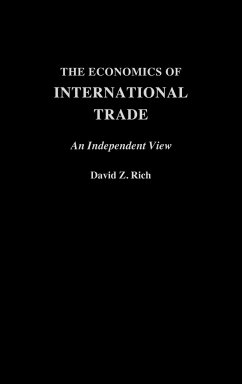This work presents a new theory and approach to the rapidly changing economics of international trade, which challenges the prevailing neo-Keynesian point of view. From a theoretical perspective, the author examines the arguments of classical and neoclassical economists to develop the concept of dynamic disequilibrium with respect to the business cycle and its influence on a country's international trade position. Additionally, this concept is applied to multinational corporations and customs unions such as the European Community in their practical trade relationships. Beginning with an examination of the general contemporary problem of trade in an uncertain world, Rich moves on to review theories of international trade--the welfare utility function, the international utility function--and their applicability to our changing economic world. Particular attention is given to the rise of the European Economic Community and the role of multinational corporations in contemporary international trade.
Hinweis: Dieser Artikel kann nur an eine deutsche Lieferadresse ausgeliefert werden.
Hinweis: Dieser Artikel kann nur an eine deutsche Lieferadresse ausgeliefert werden.

